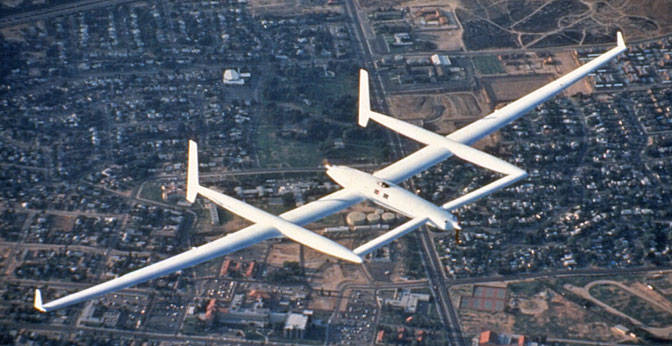102 years ago today, Visva-Bharati University was founded in West Bengal by the Indian poet and polymath Rabindranath Tagore. The brilliant Nobel Prize-winning humanist imagined a university in the town of Santiniketan to make it “a the connecting thread between India and the world [and] a world center for the study of humanity somewhere beyond the limits of nation and geography.” The alternative learning center currently ranks 50th nationally for excellence in universities, but is considered more highly by the U.S. which ranks it 4th. READ about this alternative attempt at schooling… (1921)
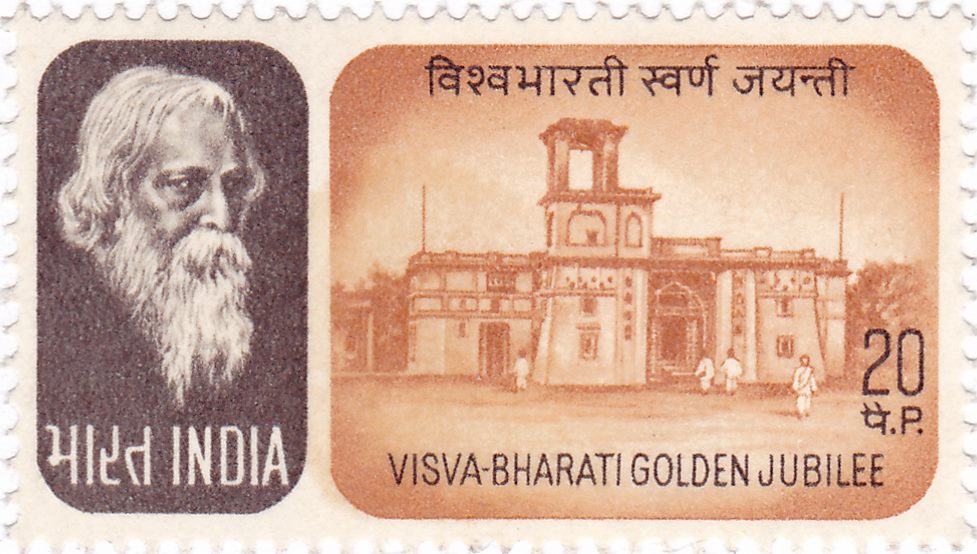
Rabindranath Tagore believed in open-air education and had reservations about any teaching done within four walls. This was due to his belief that walls represent conditioning of mind. Tagore did not have a good opinion about the Western method of education introduced by the British in India
Tagore’s idea on education was that every person is a genius and that all students may not bloom at the same time. So he devised a new system of learning in Visva-Bharati. He allowed students to continue their course till the student and his teacher both are satisfied.
On Visva-Bharati, The Hindu writes, “Santiniketan in many ways is still quite different compared to other universities in the country. Located at Bolpur in Birbhum district of West Bengal, the university still has the rural trappings that Tagore dreamt of. The classes are still held in the open under the shade of huge mango trees and students and tutors alike still travel by cycles to keep pollution at bay. The old buildings, even those that were made up of mud walls and thatched roofs, are still intact and find a place within the main campus. While some are preserved for historical value, others are functional in all aspects. While for tourists it could only be a place for sight-seeing, the studious and the academically inclined can easily feel the scholastic vibrations. Many, especially the Bengalis, have deep reverence for the place and take the visit as a pilgrimage to pay their respects to Tagore.”
MORE Good News on This Day:
- ‘Twas the Night Before Christmas, by Clement Clarke Moore was first published anonymously in the Troy, New York Sentinel—arguably the best-known poem written by an American, and largely responsible for modern Santa Claus lore (1823)
- The transistor was first demonstrated (1947)
- The first human kidney transplant was performed (1954)
- 82 crew members of the U.S. Pueblo were released by North Korea, 11 months after capture (1968)
And, 37 years ago today, The Voyager landed after 9 days, becoming the first airplane to fly non-stop around the world without refueling—setting a world record that remains unchallenged today.
It was envisioned and sketched on the back of a napkin by brothers Dick and Burt Rutan, of the Rutan Aircraft Factory, and Dick’s girlfriend Jeana Yeager at lunch in 1981. With a cockpit the size of a bathtub, Dick and Jeana piloted the aircraft at an average altitude of 11,000 feet, peeing in a bag along the way. Essentially a flying fuel tank, the lightweight aircraft was built in the Mojave dessert over five years, mainly by a group of volunteers, and narrowly achieved lift-off from Edwards Air Force base’s longest runway.
“I didn’t think they’d make it,” recalled Burt who followed in a chase plane for a time. The 25,000-mile circumnavigation of the globe set one of aviation’s last milestones in nine days, three minutes and 44 seconds—and Burt was among tens of thousands of cheering spectators awaiting their arrival back at Edwards. (1986)
And, 104 years ago today, Alice H. Parker was granted a U.S. patent for the gas heating furnace. Unique among inventors of her day, she was an African-American woman—in an era before the Civil Rights or Women’s Suffrage movements.
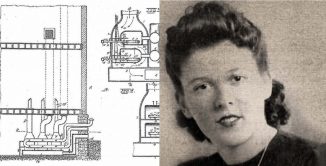
After graduating from the Howard University Academy high school in Washington D.C. with honors, she went on to design a furnace that supplied central heating through pipes for homes and entire buildings.
In the early 20th century, natural gas was used for industrial heating applications but no one at the time considered using it as a form of heat for homes and businesses—until Parker. Her idea, inspired by cold winter winters spent in Morristown, New Jersey, saved people from having to chop wood and maintain stove fires in rooms they wanted warm. Her unique air duct design included a multiple burner system and allowed for independently controlled zone heating, where the temperature could be moderated in different areas of a building. Her invention was further improved by others who added needed safety features. (1919)
Happy 80th Birthday to the comedian, writer, voice actor, musician, and producer Harry Shearer, who was born to Jewish immigrants in Los Angeles. As a 7-year-old, he won a role on the Jack Benny show and he became a writer and cast member on Saturday Night Live between 1979 and 1985.
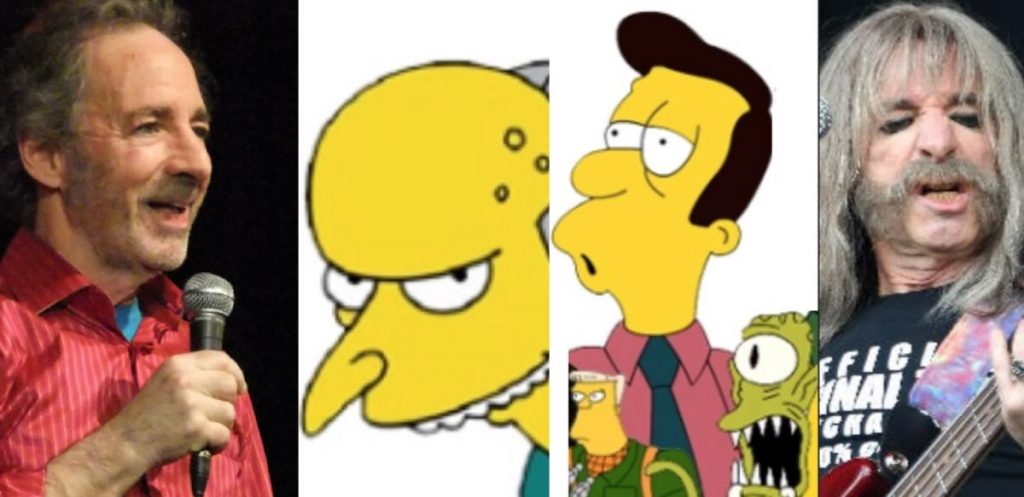
Shearer also co-created, co-wrote and co-starred in the 1984 film This Is Spinal Tap, a satirical rockumentary, which became a cult hit. In 1989, he joined the cast of the beloved animated sitcom The Simpsons, providing the voices for characters including Mr. Burns, and a dozen others. Shearer has also released five solo comedy albums, authored of a novel, and has directed documentaries. (1943)
Also, on this day in 1972, the 16 survivors of the Andes flight that crashed into mountains finally secured help, ending two months of desperation on a frigid glacier.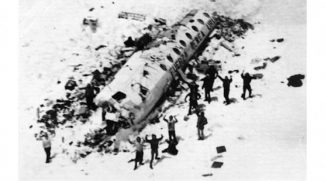
All of the passengers eventually succumbed to the survival tactic of eating their dead comrades—a decision not taken lightly, but rationalized as their only means of staying alive. Rugby player Nando Parrado’s account of the tragedy—and his 10-day trek to find help—was detailed in a book called, Miracle in the Andes. A description of the book says: “Nando, an ordinary young man with no disposition for leadership or heroism, led an expedition (with his friend Roberto Canessa) up the treacherous slopes of a snow-capped mountain and across 45 miles of frozen wilderness in an attempt to find help.”
“I tried to learn from the experience, changing my life dramatically. says Parrado, now a speaker, media producer, and businessman. WATCH the trailer of the film, I am Alive, below…
Happy 83rd Birthday to Jorma Kaukonen the folk, blues, and rock guitarist who performed with the Jefferson Airplane band (a name that he suggested) and still regularly tours with Hot Tuna, which started as a side project 50 years ago with bassist Jack Casady. Rolling Stone magazine ranked Jorma #54 on its list of 100 Greatest Guitarists, and he scored an FM radio hit with Keep on Truckin’ (Mama) from Hot Tuna’s first studio album, Burgers. (See the performance below)
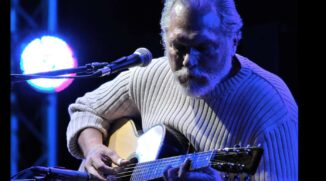
Born in Washington, DC, he’s been showing off his iconic acoustic fingerpicking skills with Jack Casady during quarantine concerts from his Fur Peace Ranch Guitar Camp in Ohio and he’s also giving guitar lessons online, with details on his website. Join his friends at 8:00pm tonight for a YouTube streaming celebration of his turning 80. LISTEN to his 1988—absolutely beautiful—Water Song. Also watch a performance of Hesitation Blues on YouTube, which was another Hot Tuna FM favorite. (1940)
SHARE the Milestones, Memories, and Music…




















